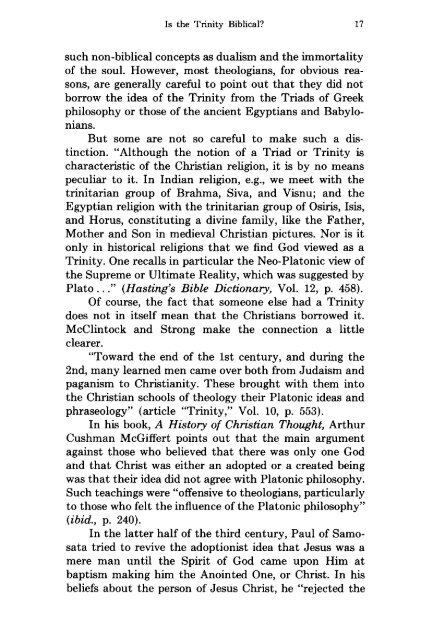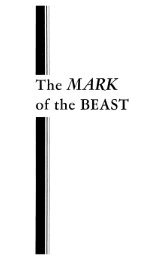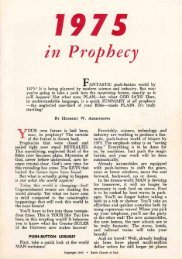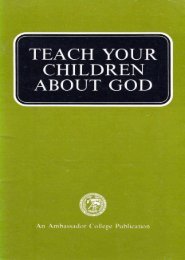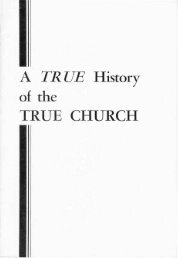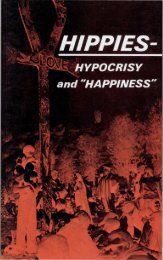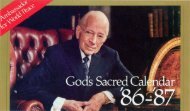Is God A Trinity PDF - Church of God Faithful Flock
Is God A Trinity PDF - Church of God Faithful Flock
Is God A Trinity PDF - Church of God Faithful Flock
Create successful ePaper yourself
Turn your PDF publications into a flip-book with our unique Google optimized e-Paper software.
<strong>Is</strong> the <strong>Trinity</strong> Biblical? 17such non-biblical concepts as dualism and the immortality<strong>of</strong> the soul. However, most theologians, for obvious reasons,are generally careful to point out that they did notborrow the idea <strong>of</strong> the <strong>Trinity</strong> from the Triads <strong>of</strong> Greekphilosophy or those <strong>of</strong> the ancient Egyptians and Babylonians.But some are not so careful to make such a distinction."Although the notion <strong>of</strong> a Triad or <strong>Trinity</strong> ischaracteristic <strong>of</strong> the Christian religion, it is by no meanspeculiar to it. In Indian religion, e.g., we meet with thetrinitarian group <strong>of</strong> Brahma, Siva, and Visnu; and theEgyptian religion with the trinitarian group <strong>of</strong> Osiris, <strong>Is</strong>is,and Horus, constituting a divine family, like the Father,Mother and Son in medieval Christian pictures. Nor is itonly in historical religions that we find <strong>God</strong> viewed as a<strong>Trinity</strong>. One recalls in particular the Neo-Platonic view <strong>of</strong>the Supreme or Ultimate Reality, which was suggested byPlato ... " (Hasting's Bible Dictionary, Vol. 12, p. 458).Of course, the fact that someone else had a <strong>Trinity</strong>does not in itself mean that the Christians borrowed it.McClintock and Strong make the connection a littleclearer."Toward the end <strong>of</strong> the 1st century, and during the2nd, many learned men came over both from Judaism andpaganism to Christianity. These brought with them intothe Christian schools <strong>of</strong> theology their Platonic ideas andphraseology" (article "<strong>Trinity</strong>," Vol. 10, p. 553).In his book, A His tory <strong>of</strong> Christian Thought, ArthurCushman McGiffert points out that the main argumentagainst those who believed that there was only one <strong>God</strong>and that Christ was either an adopted or a created beingwas that their idea did not agree with Platonic philosophy.Such teachings were "<strong>of</strong>fensive to theologians, particularlyto those who felt the influence <strong>of</strong> the Platonic philosophy"(ibid., p. 240).In the latter half <strong>of</strong> the third century, Paul <strong>of</strong> Samosatatried to revive the adoptionist idea that Jesus was amere man until the Spirit <strong>of</strong> <strong>God</strong> came upon Him atbaptism making him the Anointed One, or Christ. In hisbeliefs about the person <strong>of</strong> Jesus Christ, he "rejected the


